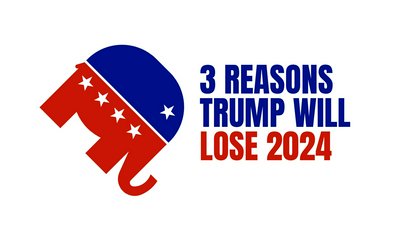economyParis
The Shy Corbynites: Despite Weak Polling Numbers Three Weeks Prior to the General Election, Labour Will Win on 12 December [Prediction]
DrJLT made the case for a Labour victory before the 2019 UK General Election. While it didn't work out, a lot of the points made here could come into pla...
![Hero Image for The Shy Corbynites: Despite Weak Polling Numbers Three Weeks Prior to the General Election, Labour Will Win on 12 December [Prediction]](/x/img/67/25/1582788943_t2.jpg)
Three weeks before the general election in the UK, polls suggest that the Conservatives have a 10+% lead over Labour nationally. These numbers, if correct, would point to a likely Conservative majority. Despite this lead, I predict a scenario in which Labour obtains parliamentary majority in this post
The Conservatives have kept its lead since Boris Johnson became the party leader and soon thereafter the Prime Minister in late July. Their lead came at the cost of the Brexit Party, which was briefly the most popular political party according to polls from May and June around the European Parliament election. Brexit Party, however, have essentially conceded that voters wishing for quick severance from the European Union should vote Conservative. While their leader, Nigel Farage, insists that the Brexit Party should hold seats in the parliament and thereby hold the Conservative Party accountable on the issue of Brexit, it is highly unlikely for them to win any seat after the aforementioned concession.
Brexit
On the issue of Brexit, therefore, there are three different stances: The Tories are for quick, hard Brexit; the Remain Coalition, consisting of the Liberal Democrats, Green, and the Welsh Nationalists, are for immediate revocation of Article 50 and thus remain; Labour offers a second referendum on Brexit, a position that is also palatable to the Scottish National Party (SNP), who would campaign for remain.
Many observers seem to believe that this is the overbearing issue. Apparently, Tory and Lib Dem strategists do so, too. Labour, on the other hand, was dealt with unique difficulties: Unlike Conservative voters who overwhelmingly supported leave, Labour voters are split on two sides of the "Brexit divide". In my opinion, it is ingenious for Labour to emphasize other issues and take on a neutral stance on the issue of Brexit.
Hard-line Brexiteers, after the concession by the Brexit Party, would almost certainly vote Conservative. However, Europhiles do not necessarily support the revocation of Article 50; indeed, many have for months been demanding a second referendum. They also seem to share the confidence that remain would receive majority support in any such referendum, once the younger generation take their democratic responsibility seriously. Meanwhile, leave voters who also care about social programmes could conceivably accept a second referendum, particularly as the current "deal" by Boris Johnson is not the darling of every leaver.
The Remain Coalition compete primarily in seats currently not held by Labour; therefore, their electoral agreement is unlikely to punish the Labour Party but may rob the Conservatives of a couple of MPs. Seeing the development of the first two weeks of the campaign, however, I do think the Lib Dems will regret their decision to be the party of hard-line remain: They simply cannot answer the question of "democracy" satisfactorily. Interestingly, the Liberal Democrats were almost as popular as the Brexit Party around the European elections and won historic number of seats in the European Parliament; it is not a coincidence, then, that as the Brexit Party fades, the Lib Dems will soon follow.
In my opinion, the stance held by Labour is the only sensible and mature alternative to hard-line Brexit. This is the first reason why I think they will win the election.
Austerity
The second major issue is austerity — the end of it. The Liberal Democrats are again the major party that has mis-stepped: They have consciously chosen their leader, Jo Swinson, to be the face of their "presidential-style" campaign. While she may be a compelling politician, Ms Swinson is particularly vulnerable on the issue of austerity. Indeed, during the coalition government, she, as did her party, voted together with the Conservatives on several major issues from which she has since taken a 180 departure. Moreover, the Lib Dems are proposing only moderate reversal of austerity measures, providing little contrast on this issue with the Tories.
Speaking of the Conservatives, they promise no increase in income tax, national security, or VAT. They have some spending initiatives, but nothing strikes as audacious. For voters who have become cynical of politics, the Tories are promising the least and therefore the least likely to disappoint. As a side note, it is interesting that they seem to be unaffected by their lead in imposing austerity while the Lib Dems continue to be punished for their "collaborative" role.
Labour propose something entirely different. Chief among their proposals are heavy investment in a range of infrastructure and service sectors, (re)nationalisation of key industries (that used to be national but have since been sold off since the 1980s), construction of large number of council homes, gradual reduction of working hours, abolition of tuition fees, and free broadband internet connection, etc. For the non-cynical, all these are attractive policies. Opponents of these policies all point to their cost. Labour ascertain that all initiatives are costed.
In my opinion, non-cynical voters will gradually warm up to Labour's proposals, they have not already; cynical voters are less likely to care about this issue (after all, even the cynical would be hard pressed to think that the Tories would spend more). Those who care deeply about fiscal responsibility could find what the Conservatives offer less "dangerous", but I have the feeling that these are traditional conservative voters anyway. This is the second reason why I think Labour would win.
Character
The third major issue is Character. Boris Johnson has an abysmal record in trust, and having been in power for almost a decade, the Conservatives bear a long trail of scars. In contrast, because Labour have been in opposition, there is little action against which their words could be judged. In any other circumstances, Labour should be polling ahead. They are not, probably because the character of the party and of their leader, Jeremy Corbyn, has been questioned in recent months amid a series of scandals.
From accusations of sexism and antisemitism to departures of MPs ostensibly in response to the handling of these accusations, Labour have been plagued by infighting and perhaps mismanagement. This has made Jeremy Corbyn quite "unpopular" for his lack of leadership. While these issues have received broad attention, their substance has been weak. Indeed, being lenient seems to be more consistent a "leadership style" for Jeremy. Whether this makes him a more uniting figure, as he argues, or an ineffective leader of a country (which is much different than a political party) remains to be seen.
What I hypothesize is that there may well be many "Shy Corbynites", people who like the Labour programme but prefer not to voice support for them because the Labour brand is momentarily tarnished. Historically, pollsters were surprised by Shy Tories on a couple of occasions. Those were times when the Conservative brand suffered similar negativities. While it could be argued that people might prefer being perceived as generous as opposed to "nasty", on this occasion voters are less likely to tell pollsters they would vote Labour instead of Conservative to avoid being "nasty". The combined effect of these dynamics is the third reason why I think Labour would win.
Before I conclude this post, I should emphasize that this is only a prediction that goes against current polls. What happens next if Labour indeed win, you may ask. My guess is that the British people will vote Leave again in the second referendum.
This article was originally published by me on Medium and LinkedIn on 25 November 2019.



